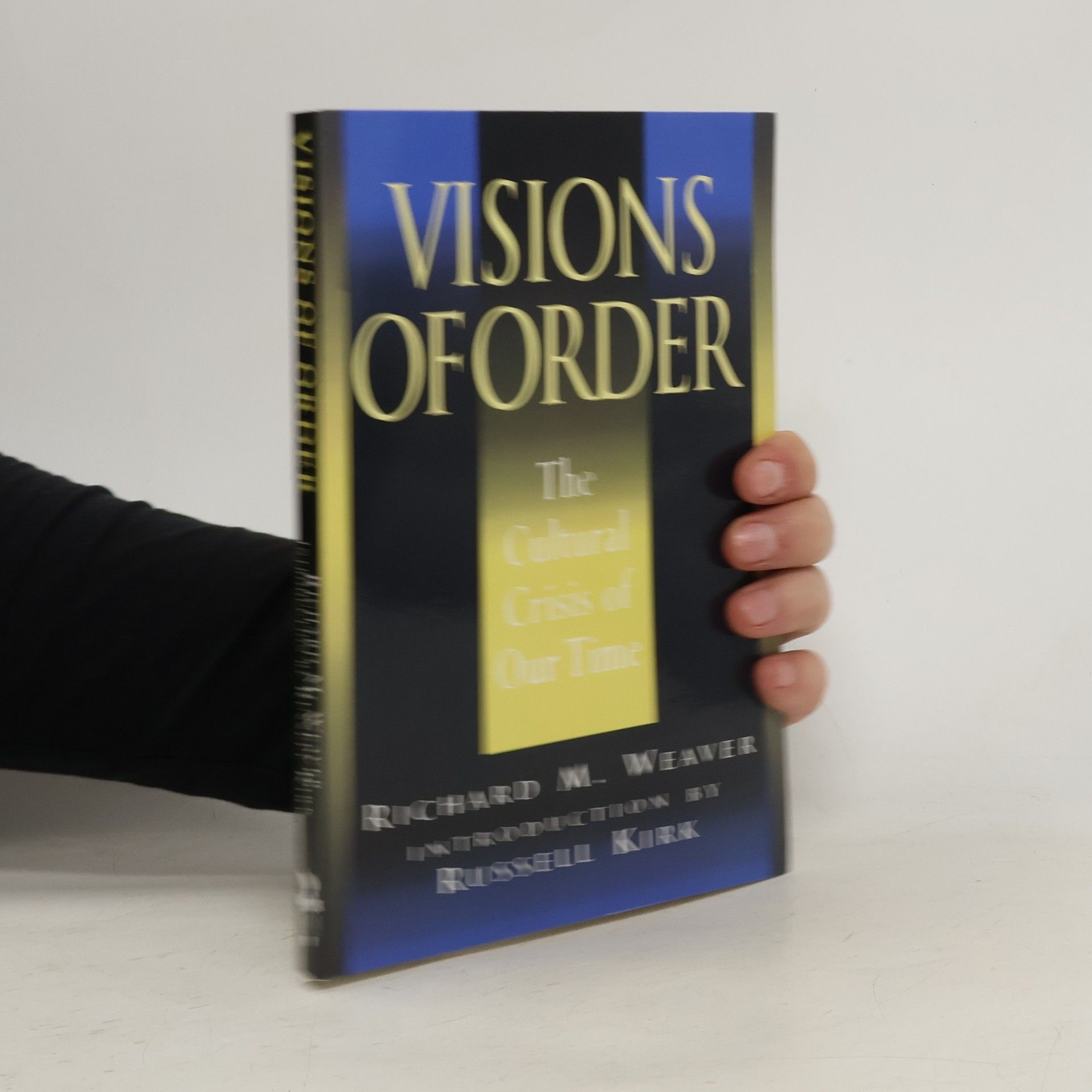Visions of Order
The Cultural Crisis of Our Time
This classic work by the author of Ideas Have Consequences boldly examines the Intellectual roots of our current cultural crisis.
Una figura solitaria nella vita accademica americana del XX secolo, questo autore ha insegnato inglese all'Università di Chicago. È noto come un artefice del conservatorismo di metà secolo e un'autorità sulla retorica moderna. Come filosofo platonico, ha esplorato il problema degli universali e criticato il nominalismo, operando come critico letterario e culturale e teorico della natura umana e della società. I suoi scritti, in particolare quelli sulle conseguenze delle idee e sull'etica della retorica, rimangono influenti, specialmente tra i teorici conservatori e gli studiosi del Sud degli Stati Uniti.




The Cultural Crisis of Our Time
This classic work by the author of Ideas Have Consequences boldly examines the Intellectual roots of our current cultural crisis.
While Richard M. Weaver is best known for the classic Ideas Have Consequences, the foundation of his career was this study of his native South. Calling the Southern tradition "the last non-materialist civilization in the Western world," he traced its roots to feudalism, chivalry, religiosity, and aristocratic conventions. The Old South, he concluded, "may indeed be a hall hung with splendid tapestries in which no one would care to live; but from them we can learn something of how to live." Weaver’s exploration of the ideals and ideas of the Southern tradition as expressed in the military histories, autobiographies, diaries, and novels of the era following the Civil War—especially those written by the men and women on the losing side—is offered to a new generation of readers for whom that tradition has fallen into disrepute and who can scarcely imagine a life rooted in nature, the soil, and a powerful sense of honor. The Southern Tradition at Bay is, as Jeffrey Hart noted, the work of a man who admired what "is admirable indeed, and that is the foundation of wisdom and indeed sanity."
Originally published in 1948, at the height of post-World War II optimism and confidence in collective security, this title uses words hard as cannonballs to present an unsparing diagnosis of the ills of the modern age. It argues that the decline of Western civilization resulted from the rising acceptance of relativism over absolute reality.
Kniha obsahuje pozoruhodnou kritiku moderního masového, atomizovaného člověka; industrializace a snahy o naprosté ovládnutí přírody; moderních masmédií; ale i takových kulturních proudů jako jazz v hudbě či impresionismus v malířství; dále smazávání rozdílů mezi muži a ženami, jakož i pomužštění žen; a samozřejmě i laciné víry v pokrok v situaci, kdy se všude kolem šíří barbarství.